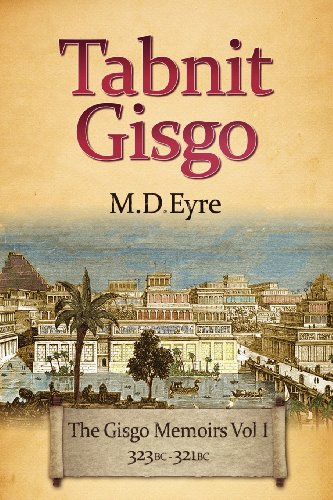Tabnit Gisgo: The Gisgo Chronicles, Volume 1: 323BC–321BC
M.D. Eyre has created an antihero to rank with the best of them: cowardly, crass, bumbling, and thoroughly unpleasant, along, of course, with being immensely entertaining. In the novel he is elderly and writing his memoirs while fending off the amorous attentions of his mother-in-law and arguing with his dolt of a neighbor who is building a tomb for himself in his backyard. The point of this memoir, it seems, is to set the record straight about how Alexander the Great really died. Gisgo warns you from the start that his memory may not always be precise, setting the reader the enjoyable task of sorting out fact from double fiction.
The story is told in first person as translated by an antiquarian using the slang storytelling style of the 1910s or ’20s (so Alexander is “a bloke” and women’s breasts are “melons”). It is wonderfully effective, revealing more about the characters than an attempt at scholarly Macedonian and offering flavor to Gisgo and other characters through their speech. There is one poignant moment when Gisgo looks into Alexander’s eyes and sees real grief and exhaustion, but once that is over with you can relax: there is no more sentiment but many, many more laughs. One of my favorite characters is the Persian eunuch, a nod perhaps to Alexander’s other famous lover, whose style of speech would be worth the read all by itself. The battle scenes at Camelsford would make Bernard Cornwell proud but unlike Sharpe, Gisgo is no hero; he participates only because Ptolemy discovers his hiding place. You will find a rip-roaring great tale that also has a subtle message about how a hero can mess everything up for everyone, and that goes double for “the great.”










